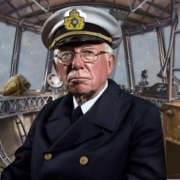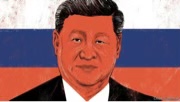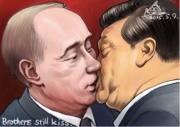|
A big part of the reason there was so much repression during the interwar period was also that simply the First World War had shattered the finances of the empire and if they had handed out dominion status, much of that revenue would have stayed in India and with the Indian elite.
|
|
|
|

|
| # ? May 23, 2024 13:41 |
|
Spazmo posted:A similar dynamic, which I think Fanon lays out in detail In The Wretched of the Earth (I may be thinking of the wrong book), is that the colonizer never allows industry to develop in the colony. You only extract natural resources and send them back to the metropole to be refined or transformed into more complex or finished goods, which you can then sell back to the people living in the colony at absurd markups, in exchange for the wages you paid them to labour in your mines or oil fields or fields or whatever. If you allowed resource extraction, transformation thereof into finished goods and consumption of the goods to all happen within the colony, then they wouldn't have any need for the metropole. It isn't just about lack of investment in industry: colonialism carries with it a large scale coordinated effort to destroy existing industry and infrastructure. This was a big deal in India. Indian craftsmanship was very prized among the wealthy in Britain, particularly textiles. Initially, this was a massive hit of profit for the trading companies, but they fairly quickly decided to do as much as possible to destroy it to make India dependent on imports of finished goods from Britain. It went as far as cutting off the fingers of textile weavers. That's why textile production was a big part of Gandhi's spiel, he made a show of spinning yarn on a spinning wheel all the time and encouraged everyone to do the same. It was about rebuilding a destroyed industry in order to regain economic independence. The Indian flag was initially planned to have a spinning wheel.
|
|
|
|
StashAugustine posted:Bolivar probably needs an honorable mention in here afaik Wasn't Bolivar's thing not that he was a military genius but more that he had superhuman levels of determination and stamina so he just kept loving plugging away trying to liberate an entire continent, despite getting his rear end kicked a few times
|
|
|
|
What indian elite? The ICS was full of european officers. The princelings didn't have an army to enforce their monopoly of violence, and the Indian capitalist class was beginning to split with more mainline indian nationalism into hindu nationalism because the former was turning too left leaning. The repression was due to actual german acts of sabotage and the existence of things like the USSR. Early in WW1 there was a diplomatic row between the US and the UK regarding Indian revolutionaries in the USA. Hell the mass civil disobedience thing was the best way to neutralize the benefit that the british had in case of a military conflict. Hard to prove to your american creditors that you are doing a civilising mission when you send uniformed goons to beat people up who are making salt by the beach.Frosted Flake posted:I understand what youíre saying, and I can sort of understand it, but Iím trying to wrap my head around the British happier at being relegated to an insignificant rainy island rather than keeping the Jewel in the Crown? Wasnít the whole premise of the Civilizing Mission that they turn Indians into Little Englishmen? If the entire point of Liberal Empire was to bring Britishness/Frenchness to these people, and I understand the racist premise and how Liberal Empire was still violent and exploitative, thenÖ wouldnít the ultimate success of the project be cricket playing Etonian Indian MPs representing Bombay in the Commons? Similarly, if Franceís rallying cry was ďici, cest la France!Ē wouldnít coffee drinking egalitarian deputies from Beirut and Dakar be testiment to the French national motto? The british did turn indian subgroups into little englishmen. The parsis started off right next to the mughal british factories at Surat and later Bombay and provided a lot of financial capital from their local trade networks during the initial years of the EIC. By the late 19th century they were turning into budding class traitors like Madame Cama who was going around socialist gatherings and talking about colonialism with sympathetic workers movements in continental Europe. The bengali intellectual in anglo indian literature from the latter half of the 19th century writing was essentially the Jew from Der Sturmer. Too europeanized to be a disgusting Hindoo/Muslim ogre, too dark to be shoved into polite company unless your club needed more due paying members. The 20 years before the run up to the first world war required the raj to scientific racism to increasingly justify the unequal position between indians and the british seemingly against the general wishes of the crown. The exigencies of WW1 showed that you needed Indian officers at least up to brigade level because a lot of those romantic Hindustani speaking lieutenants and captains (and their nice subedar sargeants) got mowed down by machine gun fire on the western front. The imperial german army killed off the high point of the raj in the french mud. Also turning people into little englishmen also was introducing intelligentsia to more radical left theories coming out of europe. All that culminated in a bunch of the non martial race intellectuals joining the CPSU after the first world war and then getting purged by uncle joe. It was a wild ride for those fellas. Now there were a lot of true believer libcucks in the civilizing mission of India but they were always treated with disdain by the Anglo Indian ruling strata of the raj. There's a sickening amount of 'british new woman moves to India to find a nice husband with her liberal ideas, sees beastly hindoos/mahomedeans and gets raped/killed by them' literature. Orwell's writing on the raj just strips away all that and shows the actual class dynamics underneath. Burmah Days is essentially him stripping away the mystique of an entire culture that the conservative british intelligensia looked to in Kipling's writing and laying it bare. The indian doctor is the nice liberal who believes in the civilizing mission of Britain. The woman in the story is trying to find a husband because her uncle wants to rape her. The protagonist is a guy who loves the country but is too loving racist to actually see himself as one. The story ends with the indian being sent to a worse backwater, the woman marrying some probably closeted colonial official and lording over servants and the hero killing himself because he is too ashamed.
|
|
|
|
Zeppelin Insanity posted:It isn't just about lack of investment in industry: colonialism carries with it a large scale coordinated effort to destroy existing industry and infrastructure. This was a big deal in India. Indian craftsmanship was very prized among the wealthy in Britain, particularly textiles. Initially, this was a massive hit of profit for the trading companies, but they fairly quickly decided to do as much as possible to destroy it to make India dependent on imports of finished goods from Britain. It went as far as cutting off the fingers of textile weavers. Btw, bombay was a major industrial center by the time gandhi started non cooperation, and spinning coarse yarn on the charkha predates him somewhat with the swadeshi movement. All the profits the early opium traders in India made were dumped into processing cloth in India.
|
|
|
|
The British empire was explicitly a racist empire built on the premise of white supremacy. It also had this persistent British doctrine that its evil and sinful to help people who need your help. (since if you are robbing them of the chance to better themselves you're essentially enslaving them to you and yourself to them) So the idea of a greater britain really went against both of these. In fact the most important tenet of the empire (and still influential today) was that AT ALL COST we couldn't have the poor either abroad or at home thinking that its the governments responsibility to help them Also quite literally, Real hurthling! posted:empire is about stealing and killing to steal more. the rest is just what they tell the rubes to carry out the mission
|
|
|
|
I know in Canada, and even earlier when the American Colonies were trying to push into the Ohio Valley, that King George/The Great White Mother Across The Sea scandalized the colonists by taking treaties seriously, it was this huge point of contention. The treaties gave then the right to petition the Crown directly, bypassing Canada and apparently it infuriated the Canadian government. I wonder if the same dynamic was happening in India? Thereís a book about native peopleís various trips to London to petition the Crown and how they were often treated better than in Canada, despite being a more uncommon sight - Indigenous London ďLondon is famed both as the ancient center of a former empire and as a modern metropolis of bewildering complexity and diversity. In Indigenous London, historian Coll Thrush offers an imaginative vision of the city's past crafted from an almost entirely new perspective: that of Indigenous children, women, and men who traveled there, willingly or otherwise, from territories that became Canada, New Zealand, Australia, and the United States, beginning in the sixteenth century. They included captives and diplomats, missionaries and shamans, poets and performers. Some, like the Powhatan noblewoman Pocahontas, are familiar; others, like an Odawa boy held as a prisoner of war, have almost been lost to history. In drawing together their stories and their diverse experiences with a changing urban culture, Thrush also illustrates how London learned to be a global, imperial city and how Indigenous people were central to that process.Ē The other thing that your comments about the Anglo Indians has me thinking about is the book about the Indian love of cricket which seems to have developed against the wishes of the British there - the opposite of what Iíd expected. I would have thought theyíd, if not encouraged, welcomed Indians playing cricket as a sign of Anglicizing and demonstrated you know fair play and all that Etonian poo poo. A Corner of a Foreign Field: The Indian History of a British Sport ďA Corner of a Foreign Field seamlessly interweaves biography with history, the lives of famous or forgotten cricketers with wider processes of social change. C. K. Nayudu and Sachin Tendulkar naturally figure in this book, but so, too, in unexpected ways, do B. R. Ambedkar, Mahatma Gandhi, and M. A. Jinnah. The Indian careers of those great British cricketers, Lord Harris and D. R. Jardine, provide a window into the operations of Empire. The remarkable life of Indiaís first great slow bowler, Palwankar Baloo, provides an arresting new perspective on the struggle against caste discrimination. Later chapters explore the competition between Hindu and Muslim cricketers in colonial India and the destructive passions now provoked when India plays Pakistan.Ē I suppose what I hadnít come to terms with is the role played by all these people who werenít idealistic Army officers, Empire Builders or civil servants. People joke about what British tourists are like, especially in Spain, and I hadnít realized that those sort of people apparently made up a good chunk of the Anglo Indians, and like in Canada and the American Colonies, didnít really care about what Victoria has promised or any of these ideas, nor were they London bankers and directly profiting, they were just kind of awful. Is that about right? I realize their awfulness was the result of material conditions in some way, I just canít put my finger on how. I understand itís useful to have your middlemen at the sharp end of exploitation hate and despise the locals, and I realize for them this kind of visceral distain made doing the exploitation easier to bear on their conscience. I suppose Iím wondering how this kind of enmity formed, and how large a barrier this group of people was to any sort of fair or decent treatment of Indians. Frosted Flake has issued a correction as of 14:49 on Feb 11, 2022 |
|
|
|
In many cases the churchillian dream worked out. The tory party seems to be full of clowns like rishi sunak who work like the ideal of the liberal imperial project.Frosted Flake posted:I know in Canada, and even earlier when the American Colonies were trying to push into the Ohio Valley, that King George/The Great White Mother Across The Sea scandalized the colonists by taking treaties seriously, it was this huge point of contention. The treaties gave then the right to petition the Crown directly, bypassing Canada and apparently it infuriated the Canadian government. I wonder if the same dynamic was happening in India? Anglo Indians as a class, especially the ethnically pure britons defined themselves as a group in opposition to the teeming Indian masses ruled over by the imperial government. They would be the white equivalent to the native princes that stayed loyal in the 1857 rebellion and who raised huge amounts of money for the viceroy's administration whenever there was a war scare with the Russian empire during the great game. Without a British Raj Anglo Indians would be superfluous. Even in the most marginally franchised electorate they would be negligible compared to the Indian professional managerial class and bourgeoisie. Independent India gave anglo indians a vastly inflated seat count of 2 MPs in the indian parliament of 543. At the same time due to their proximity with the ruling structures of the raj gave them a vastly bigger say in the cultural sphere of the metropole. Tankbuster has issued a correction as of 15:01 on Feb 11, 2022 |
|
|
|
Mantis42 posted:What about like Canada or Australia? It seems like there could have been an attempt at a proper imperial federation with them and they're Anglo. The US left over a lack of representation in parliament, among other reasons, so why not give the Canadians MPs? One, they were white so when they asked for local autonomy it was easy to frame that as a justified request for freedom rather than just another colony not knowing its place. Two, they were far-off places in a time when rapid communication and travel wasn't easy, so it made more sense to grant them limited autonomy and self-rule as long as they committed to retaining their political, economic, and military ties to Britain. In Canada, for instance, confederation came about in part because of the perceived threat of expansion from the south. A unified Canada governed centrally from Ottawa was considered more able to resist American influence and incursion than a network of disunited smaller colonies (at the time Canada formed, what is now Canada was made up of something like seven different British colonies and a bunch of unincorporated British-claimed land, each with its own particularities). Giving each of those colonies one or two MPs and sending them to London to represent the various parts of Canada would have done nothing to strengthen the Canadian colonies against the US, but giving them a centralized Canadian state and government did. And part of the bargain was that it wasn't real independence, the dominions remained economically tied to Britain, culturally tied to Britain, demographically tied to Britain, and didn't even have their own foreign policy for decades, so they were still obliged to expend their resources and manpower on any important British wars just as if they remained colonial territories. Dominion status was basically a clever bit of decentralization intended to strengthen the empire as a whole by letting it concentrate its resources in more effective ways and streamline its administrative apparatus while still remaining united around anything really important like the imperial economy or World War I, and it more or less worked for decades. And the British were willing to go along with the loss of direct control over everyday affairs in the dominions because the people they were putting in charge were white people who were considered worthy of freedom and decentralized representation, and anyway those people were already in charge in the colonies anyway so it wasn't actually changing much from the centre's perspective.
|
|
|
|
Related to that, why was Australiaís confederation so much weaker and so much later? No direct threat, so no need to antagonize the local elites?
|
|
|
|
Frosted Flake posted:I realize their awfulness was the result of material conditions in some way, I just canít put my finger on how. I understand itís useful to have your middlemen at the sharp end of exploitation hate and despise the locals, and I realize for them this kind of visceral distain made doing the exploitation easier to bear on their conscience. I suppose Iím wondering how this kind of enmity formed, and how large a barrier this group of people was to any sort of fair or decent treatment of Indians. British rule was ostensibly around to keep indians from murdering each other across religious lines. It made for amusing flashpoints like bengali middle class women clashing with anglo Indian women when it came to legal matters - specifically indian judges who could potentially judge the rape cases of european women after the victoria proclamation. But yes as a whole the entire class skewed conservative except in edge cases.
|
|
|
|
Ardennes posted:The big beef of the American colonies wasnít really not having parliamentary seats but having to pay taxes to London, period. If London has negotiated directly with the colonial elite a set of circumstances that would maximize their fiscal gain without violence, they probably would have taken it. Hell, Parliament was willing to cut the colonial elite a mutually favorable deal in 1776 but Lord Howe and George III were being tremendous douchebags about the whole thing.
|
|
|
|
Frosted Flake posted:Related to that, why was Australiaís confederation so much weaker and so much later? I mean Australia was a penal colony, and prisoners were being transported until 1868. The population when it became a dominion was under 4 million and they took 220,000 killed and wounded during World War 1. Ardennes has issued a correction as of 16:35 on Feb 11, 2022 |
|
|
|
there is a more material explanation for bulk going to the metropole from colonies and finished goods going out and that relationship changing that doesnít require all the words. the container. when did the container become widespread?
|
|
|
|
Google says pottery is at least 25000 years old But before that I guess there were rams horns and skulls you could hold stuff in I guess
|
|
|
|
 these guys not packages individual packages. think about what industrialized countries had to have on the water front before containers to import and export finished goods.
|
|
|
|
Bar Ran Dun posted:there is a more material explanation for bulk going to the metropole from colonies and finished goods going out and that relationship changing that doesn’t require all the words. I read all about this last year and while I'm on my phone I can tell you that containerization only really took off in the 1980s
|
|
|
|
Bar Ran Dun posted:there is a more material explanation for bulk going to the metropole from colonies and finished goods going out and that relationship changing that doesnít require all the words. Yeah, the bedrock of history is materialism, there is very clearly a reason why the British were there and it was raw exploitation and very changes in society were simply to act as a conduit for that exploitation. Dominion status wasnít in the cards because it would complicate that flow. That said, racism had also had a part to play (and was still guided by that colonial relationship.) Also, steel shipping start being used in the late 1950s. Ardennes has issued a correction as of 18:16 on Feb 11, 2022 |
|
|
|
If the British Empire had actually followed through on enfranchising the colonies it would all fall apart anyway, because it's impossible to do equitable development in multiple different regions around the world separated by whole continents. As soon as one region realizes it's getting the shaft they're going to agitate for independence and then you're right back at Square 1.
|
|
|
|
gradenko_2000 posted:I read all about this last year and while I'm on my phone I can tell you that containerization only really took off in the 1980s look at the process occurring as manufacturing shifts. finished goods, heavy industry particularly shipbuilding started before.
|
|
|
|
Mantis42 posted:What about like Canada or Australia? It seems like there could have been an attempt at a proper imperial federation with them and they're Anglo. The US left over a lack of representation in parliament, among other reasons, so why not give the Canadians MPs? As touched on earlier, the US didn't leave over lack of representation, it left over paying anything ever. The British had just fought a very expensive war on behalf of American colonists (The French and Indian War started over land claims in the Ohio Valley and then expanded into the Seven Year's War - the first European World War) and wanted to levy a few mostly reasonable taxes to pay for it. The American wealthy elite poo poo themselves over the prospect and ginned up a bunch of patriotic idiocy to foment a war of tax avoidance. The US was literally founded as a tax dodge, which explains quite a lot of its current state of affairs. E: The modern 'movement' that best captures the founding spirit of America is easily the heavily astroturfed 2009 Tea Party campaign Nix Panicus has issued a correction as of 20:11 on Feb 11, 2022 |
|
|
|
gradenko_2000 posted:I read all about this last year and while I'm on my phone I can tell you that containerization only really took off in the 1980s
|
|
|
|
Bar Ran Dun posted:look at the process occurring as manufacturing shifts. finished goods, heavy industry particularly shipbuilding started before. Imperial Rome had a massive industrial waterfront for bringing in all the raw goods the city needed to survive.
|
|
|
|
for automobiles think about the development and adoption of the RORO. for steel making think about stick ships and the transition to the modern geared handy. imagine having a circle around any manufacturing. within that circle price + transport price is competitive. the various ship type developments makes the circles larger until they are globe sized. this allows for off shoring.
|
|
|
|
Nix Panicus posted:Imperial Rome had a massive industrial waterfront for bringing in all the raw goods the city needed to survive. correct look at the old waterfronts in nyc or Boston or Seattle, or London. the angled rail piers, where the warehousing used to be, etc. the systems for moving finished good was really complicated. bulk cargo you literally just pile. bigass piles. and really only the discharge side has to really have a complicated system of conveyor belts.
|
|
|
|
Nix Panicus posted:Imperial Rome had a massive industrial waterfront for bringing in all the raw goods the city needed to survive. they had one at ostia for loading goods from ships on to barges and then another upriver for unloading the barges
|
|
|
|
A Buttery Pastry posted:It appears to have grown essentially exponentially between 1985 and 2011, around 9% a year. Based on how well it fits, my first instinct would be that nothing really changed in the 80's and the reason it appears to take off is the exponential growth finally having some volume to work with. Someone in D&D mentioned the first big break for containerization being the Vietnam War? Correct. It was a small and budding industry prior to Vietnam that mostly made US intranational shipping cheaper, but then the military's logistics going to Indochina is all ashambles and they contract container shipping lines to build out a port at Cam Ranh Bay and run freight to there. Once you've got container vessels making regular runs to Cam Ranh, you also need them in Manila as a secondary base, so Subic Naval Base gets developed to handle containers too. Japan was already seeing some containerization development in the early 70s since it made sense to do so for shipping goods to the West Coast, and they double-down on it with all the increased traffic Singapore sees all this and deliberately positions itself as a hub for container traffic given its strategic location And from there momentum builds Other points: - this was also the thing that got the ball rolling on the privatization of the US military and its dependence on private contractors - underdevelopment of South America and Africa is partially related to their having "missed out" on the develoment of ports able to handle large container vessels - containerization by itself contributed to globalization and the end of protectionism, because just the mere precipitous drop in shipping costs makes importation easier even with tariffs
|
|
|
|
egypt has a very similar history to india of its textiles industry being looted and strangled by london inbred pedos couldnt even weave some fabric without violently robbing the knowhow/technology from real civilizations
|
|
|
|
Pener Kropoopkin posted:If the British Empire had actually followed through on enfranchising the colonies it would all fall apart anyway, because it's impossible to do equitable development in multiple different regions around the world separated by whole continents. As soon as one region realizes it's getting the shaft they're going to agitate for independence and then you're right back at Square 1. Wouldnít it have been strengthened by not having all of the development focussed on enriching London? Instead of a haphazard Singapore Strategy that required the Royal Navy to be A) uncommitted elsewhere and B) not depleted by years of war with Italy and Germany, because Australia refused to meet defence commitments and London was reluctant to build up the Indian Navy, the defence of eastern waters would have been as much a priority as defence of the North Sea and the Mediterranean, with MPs in Singapore, Burma, Ceylon and so on realizing the danger they were in and having the power to steer resources to their defence. The fall of Singapore is seen by many as the definitive end of the British ability to maintain an empire in Asia, but that was an Empire determined by ďWhite Manís WordĒ and all of that other bullshit. But supposing Malaya, Singapore, Hong Kong, Kenya and so on were not subject people but equal participants, their ability to contribute militarily and economically within the region would have been greater. The base at Singapore, the required ships, infrastructure in Burma, those could have all been completed with the resources already present that were instead stripped to enrich London. Enfranchising the eastern reaches of the Empire, and using the wealth already present could have strengthened, defended and developed it. If you think about the resources and manpower present, the tremendous potential, instead of the Royal Navy bleeding itself dry, facing manpower shortages while not enlisting colonial sailors, facing a shortage of merchants and warships while not building shipyards and dockyards in the same places the raw materials used to build them originated, not inspiring any loyalty that would make Malays and Kenyans want to fight for them in the first place, that region could have been a bulwark of a Greater Britain instead of the place where the myth of British invincibility collapsed. And of course, look at the consequences for India! More than anything, the fall of Singapore sent shockwaves through the British Indian Army. I know someone said earlier that the army of the Raj with Sahib and Subedar was lost in Flanders, and I agree, but after Singapore the great British Indian Army was a shadow of itself until Imphal and Kohima, and the army that won those battles was a very different one. Proud, courageous, probably the best Indian army ever under arms, but no longer a politically reliable one, and of course, why would they be? By the time the British built up an Indian Navy worthy of the name, it mutinied, and it was right to do so. I realize Iím likely being romantic here, and maybe itís because I grew up believing that all of this sacrifice could not have been done in vain, or for capital accumulation, but Britain didnít just fail all of those people by how it ran the Empire, it failed itself too, and everything it claimed to stand for. It had never occurred to me that they would be angry and disgusted that Indian people came to love cricket. I know thatís a tiny thing in the scope of it all, itís minuscule really, but something about that really upsets me in a way I canít articulate. Because, I suppose, if you see people caring about a thing you care about, seemingly become more like you, again in this tiny way, and it makes you angry, what the gently caress are you doing there? I donít know, I donít see how thatís something worth dying for but so many people died, and I wish it was for something more worthwhile than sending money to London. Maybe itís because I dealt my role as Colonial Policeman by trying to embody these virtues, and made sense of how awful it was, that we failed, and inflicted misery, and accomplished nothing because we didnít live up to the spirit of the North-West Frontier, so learning that no, even then it was pretty much the same and the major difference was enriching Armstrong instead of General Dynamics, well, that just compounds it. Like, I felt that if our Oís learned Pashto, we shared a cantonment, we went to bazaar, maybe the ANA battery could do something more than smoke hash, abuse each other, desert and commit war crimes. You know, the Indian Army wasnít trusted with the guns, so our ANA guys could be better than the army of Imphal and Kohima, if only we let them. But no, it was all bullshit then and itís all bullshit now, at least I didnít have to discover if I felt visceral hatred at Afghans playing hockey, I think that would be hard to live with.
|
|
|
|
gradenko may not toot his own horn, but I'm pretty sure he brought up containerization during Vietnam earlier ITTFrosted Flake posted:Wouldnít it have been strengthened by not having all of the development focussed on enriching London? No, because the English would think that they're not getting a fair cut and agitate for an early Brexit from their own world system.
|
|
|
|
Pener Kropoopkin posted:gradenko may not toot his own horn, but I'm pretty sure he brought up containerization during Vietnam earlier ITT Pener Kropoopkin posted:No, because the English would think that they're not getting a fair cut and agitate for an early Brexit from their own world system.
|
|
|
|
Frosted Flake posted:And of course, look at the consequences for India! More than anything, the fall of Singapore sent shockwaves through the British Indian Army. I know someone said earlier that the army of the Raj with Sahib and Subedar was lost in Flanders, and I agree, but after Singapore the great British Indian Army was a shadow of itself until Imphal and Kohima, and the army that won those battles was a very different one. Proud, courageous, probably the best Indian army ever under arms, but no longer a politically reliable one, and of course, why would they be? By the time the British built up an Indian Navy worthy of the name, it mutinied, and it was right to do so. Well the entire reason the BIA existed in the shape it did was to prevent a 1857 again. The moment British intelligence realised how deep the leftist infiltration into their precious armed forces had been the glory of empire and it's profits was up. The Royal Indian Navy didn't just revolt over bad food. They raised the red flag and ran around bombay with photos of Lenin and SC Bose, demanded that the british remove their compatriots from places like egypt and indonesia. The revolt wasn't put down by loyal soldiers but whatever British Units they could scramble to put it down. It doesn't matter that the army was a significantly better fighting force than it was in 1939. What mattered was the huge number of non martial race soldiers who were going around reading passages from the communist manifesto to the men under their control.
|
|
|
|
A Buttery Pastry posted:Gradenko, please forgive me for assuming your post was in D&D. The constituent parts remain in the empire and are the new (current) british empire
|
|
|
|
Pener Kropoopkin posted:No, because the English would think that they're not getting a fair cut and agitate for an early Brexit from their own world system. Incredible lol. That would be something to see eh? The Empress of India really being the Empress of India while the British pout. What a miserable rainy island.
|
|
|
|
Pener Kropoopkin posted:If the British Empire had actually followed through on enfranchising the colonies it would all fall apart anyway, because it's impossible to do equitable development in multiple different regions around the world separated by whole continents. As soon as one region realizes it's getting the shaft they're going to agitate for independence and then you're right back at Square 1. As seen in the documentary Fang of the Sun Dougram.
|
|
|
|
i believe the west will win because nothing good ever happens
|
|
|
|
what're the chances this dumb country gets itself involved in a war over ukraine
|
|
|
|
I don't have any evidence obviously but it seems low to me, neither side would really benefit from an actual shooting war. So if anything pops off it won't be an intentional planned assault against opposing armed forces, but one of the more accidental "oops some guys got shot/exploded/captured" that can happen when you've got armed men in close proximity with imperfect intelligence. Naturally the other side has to then retaliate, and you've got escalation. Still, I don't expect it, just posturing and some proxy fighting, similar to Crimea at most.
|
|
|
|
A Buttery Pastry posted:Imagine the utopia where the English leave the Empire and never join the EU, instead becoming a The UK still would've been its own entity under the direct authority of the Crown, which means the English would have dragged along Wales, Scotland, & Ireland with them - just as they've done in real life. What would be really interesting is if the other union kingdoms would be willing to revolt over it - but that's getting too far into the weeds of speculative history. genericnick posted:As seen in the documentary Fang of the Sun Dougram. lol It's easy to see the contrast between how the British empire worked and how China works today. China is a massive contiguous territory, so it's a simple thing for them to follow a development path where you industrialize the urban centers and then spread out the gains of that development to the hinterlands. The CCP can build a railroad into far flung regions like Xinjiang and that immediately brings it within the national economy. The same is true for how American states developed - even if the outcomes are ultimately unequal everybody has "equal" access to the national market economy even if the means to do so are more often than not out of reach. How would you even decide where to start investing into the productive forces in such separate and far flung regions as a global British Union state would have? Each constituent region would be agitating for their own slice of the pie. Trying to keep everyone happy through equitable distribution would decelerate development across the board, and concentrating development into strategic locations that could be built out from would lead to national resentment because there would clearly be some who gain more than others - separated by oceans and continents. This is all before we start factoring in race, and how it's antithetical to the interests of Britain to try and treat the colonies equitably. Like everybody else has said before, it's in direct opposition to the purpose of having an empire. The most rational choice that could realize the most good remains irrational for those who benefit the most from the condition of global exploitation. spacemang_spliff posted:what're the chances this dumb country gets itself involved in a war over ukraine nada Pener Kropoopkin has issued a correction as of 21:21 on Feb 11, 2022 |
|
|
|

|
| # ? May 23, 2024 13:41 |
|
Nix Panicus posted:As touched on earlier, the US didn't leave over lack of representation, it left over paying anything ever. The British had just fought a very expensive war on behalf of American colonists (The French and Indian War started over land claims in the Ohio Valley and then expanded into the Seven Year's War - the first European World War) and wanted to levy a few mostly reasonable taxes to pay for it. The American wealthy elite poo poo themselves over the prospect and ginned up a bunch of patriotic idiocy to foment a war of tax avoidance. The US was literally founded as a tax dodge, which explains quite a lot of its current state of affairs. I think within some circles in Britain, the American Revolution wasn't viewed as a bad thing. Around that time, I think that the island of Jamaica was worth more revenue to the crown then all the American colonies, and the taxes they imposed were so minor they were surprised at the resistance, and not necessarily keen to put even more money and effort to placating it. I can't recall his name but some Brit controlled the Columbian exchange at this point, and actually preferred Americans win, so he and his buddies could make even more money. He might have been the world's richest man at that point, and I mostly made this post to see if my memory was even close and who this guy might be.
|
|
|



































